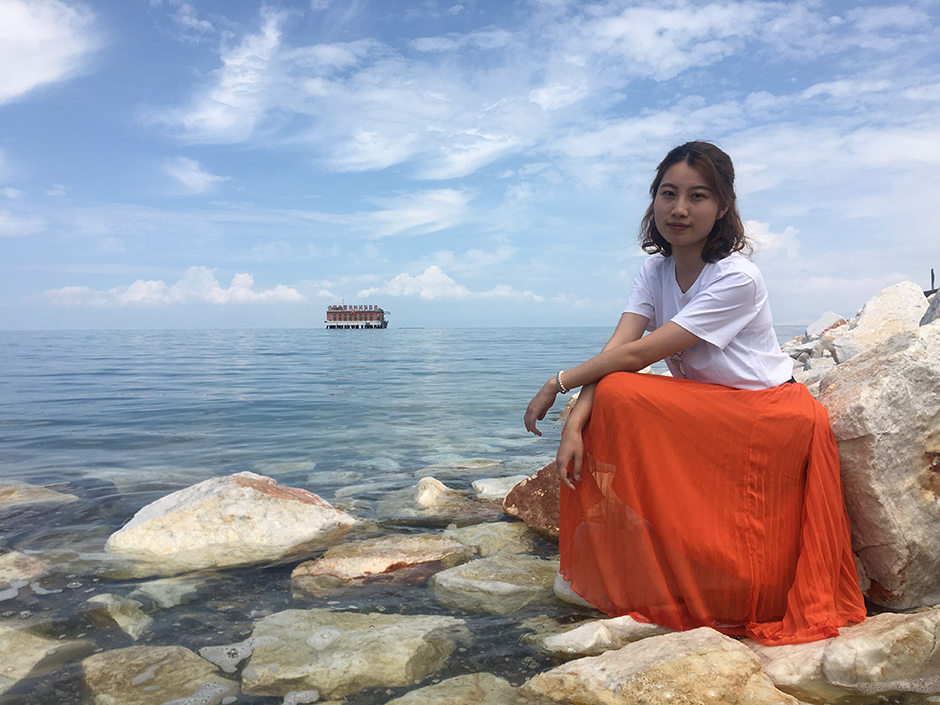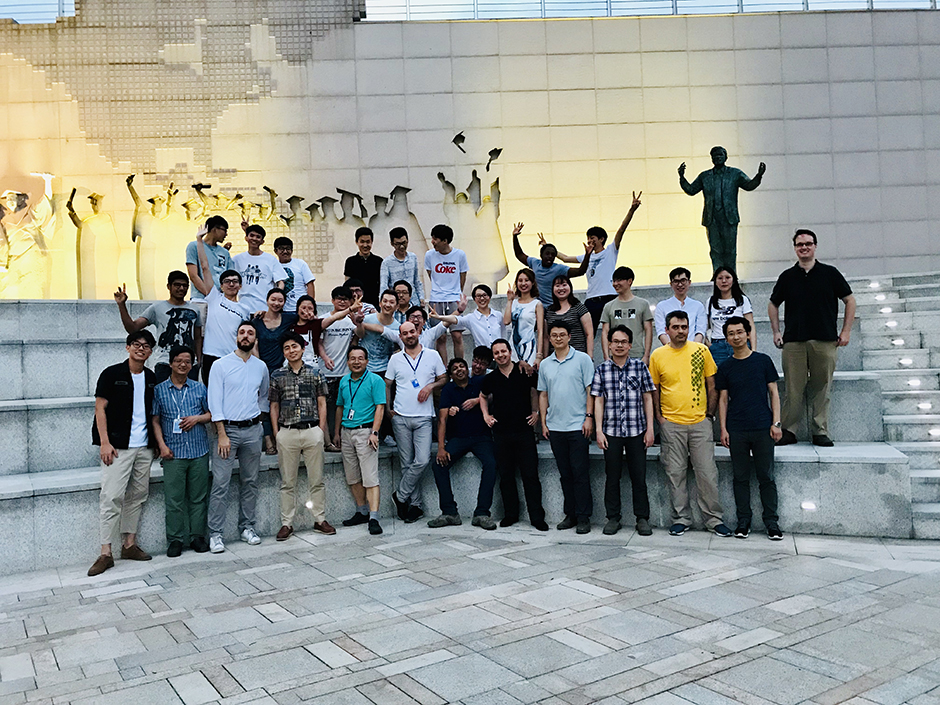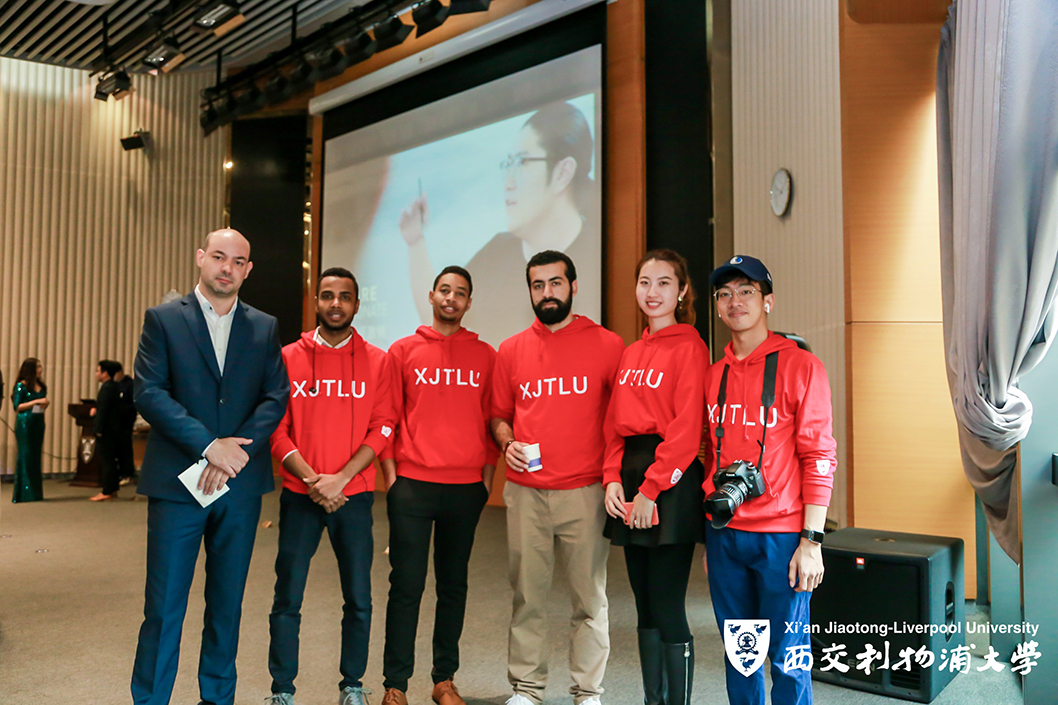29 May 2020
My name is Weiqi Xing, and I spent a total amount of five and a half years at XJTLU. In 2018, I graduated from BEng Civil Engineering; in 2019, I finished my master degree in MSc Sustainable Construction, and I’m currently studying for my doctoral degree at Western Sydney University.

I was a liberal arts student in high school, and I’ve always dreamed of studying city construction and development. It was the reason that I initially chose to study Urban Planning and Design when I entered XJTLU.
However, in the first semester, the General Education courses and the basic module “Imagining the City” of urban planning made me realize that I’m better at learning logic, maths and science. Therefore, at the end of that semester, I decided to transfer myself to the department of Civil Engineering after learning about its education background and career prospects.
Studying at XJTLU was one big decision that could affect my life’s path, while transferring from liberal arts to sciences was certainly another challenge for me. Due to the lack of systematic study of high school Physics, it was extremely hard for me to study Mechanics knowledge in BEng Civil Engineering, especially when civil engineering is a discipline based on the theory and deduction of Maths and Physics.
In order to make up for my short of knowledge as well as complete our group assignments, it was common for me and my classmates to spend all night in the computer cluster, discussing questions and communicating with each other.
During the five and a half years, my biggest gain is the ability to study independently. I feel extremely lucky that my classmates were all earnest in study, and there was always a rich atmosphere of studying in the studios which I always found myself immerged in.

The power of a group of people is to be reckoned with. The intense workload of civil engineering sometimes drove me crazy, but as I watched other students working hard, I was always able to adjust my mindset and continue with my study. Perhaps many years after graduation, the knowledge will be forgotten, but the state of independent learning is my most precious rewards. It also enabled me to become a PhD student and continue to further my study.
In our postgraduate study, the course arrangement puts more emphasis on problem thinking and solving. The assignments are no longer limited to students answering teachers’ questions; instead, students need to find the problem and solve it through investigation and research. It helps to train a postgraduate student to finish a project systematically and comprehensively, and is extremely beneficial to our future research and work.
XJTLU has always been advocating its research-led education mode. It provides various platforms and opportunities for students to communicate with teachers, and to participate in research projects; these opportunities and research experiences also empowered me to continue my PhD studies.

During my Year Three summer holiday, I took part in the Summer Undergraduate Research Funds (SURF) project, which marked the beginning of my research-led learning journey. Under the guidance of Dr. Sikora and Dr. Jianli Hao, along with other two students from the Department of Architecture and Design, we studied the feasibility of bamboo and wood in China’s architecture industry through article review and research.
My undergraduate dissertation continued this topic and focused on material performance optimization, and has been published on American Society of Civil Engineers after a whole year of review and revision.
Currently, I’m studying in the School of Built Environment at Western Sydney University under the guidance of Professor Vivian Tam. She is one of the pioneers of construction material and management research in Australia, and has developed a new recycled concrete material. I will be devoted to studying the life cycle assessment of the recycled aggregate concrete.
This research is closely connected to my undergraduate and postgraduate study at XJTLU. The sustainable development of the architecture industry should be based on reducing environmental influence and increasing economic benefit, while studying the life cycle assessment of the recycled aggregate concrete can quantify its carbon emission, energy consumption and cost, so as to optimize the products’ feasibility and improve the cost competitiveness.
It was exactly the comprehensive research experience and thinking practice during the five and a half years at XJTLU that has expanded my knowledge base, and enabled me to be favored by Professor Vivian Tam and obtained the highest scholarship from the Australian government.
Story supplied by Weiqi Xing, edited and translated by Yi Qian
Photos provided by Weiqi Xing
29 May 2020








